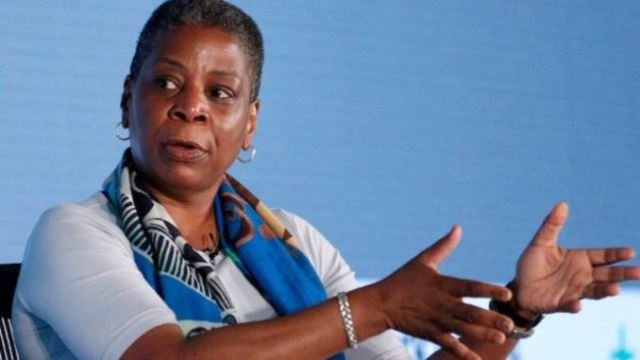VEON CEO Ursula Burns has revealed the telecom operator’s main milestones during the second quarter of 2019.
 Mobile customers increased to 212 million at the end of Q2 2019, with customer growth in Pakistan, Algeria and Bangladesh, which was partially offset by a decrease in the customer base in Russia and Uzbekistan.
Mobile customers increased to 212 million at the end of Q2 2019, with customer growth in Pakistan, Algeria and Bangladesh, which was partially offset by a decrease in the customer base in Russia and Uzbekistan.
Jazz has added 7.2 percent of its mobile phone customers in Pakistan to reach 59.5 million in the second quarter of 2019.
Djezzy has added 0.4 percent of its mobile phone customers in Algeria to reach 15.6 million in Q2 2019.
Banglalink has added 3.1 percent of its mobile phone customers in Bangladesh to reach 32.9 million during the second quarter of 2019.
Unitel has also lost 6.6 percent of its mobile phone customers in Uzbekistan to reach 8.7 million in the second quarter of 2019.
Beeline has lost 3.7 percent of its mobile phone customers in Russia to reach 54.3 million in the second quarter of 2019.
Kyivstar lost 1.1 percent of its mobile phone customers in Ukraine to reach 26.2 million in Q2.
Capex
Total Capex of VEON increased to $450 million in Q2 2019 from $402 million in Q2 2018 due to Yarovaya investments in Russia and additional network investments in Kazakhstan required as a result of the termination of a network sharing agreement with Kcell.
Yogesh Malik is the group chief technology officer of VEON responsible for the selection of the technology and network investment for the group companies.
Beeline’s Capex in Russia excluding licenses rose by 13.8 percent to RUB 15.157 million, as a result of increased network investments and investments related to the Yarovaya Law. Beeline increased 4G base stations by 50 percent as part of the strategy to enhance its coverage of mobile data network.
Kyivstar’s Capex excluding licenses increased 6.9 percent to UAH 1.2 billion as a result of further 4G/LTE roll-out during the quarter.
Jazz’s Capex excluding licenses increased to PKR 9.8 billion, following improvement in its network and 4G/LTE rollout. Jazz has data coverage in more than 225 cities. Its population coverage of data network was more than 50 percent.
Djezzy’s Capex excluding licenses rose 4.5 percent to DZD 3.4 billion as the company’s 4G/LTE services covered 28 wilayas and close to 27 percent of Algeria’s population. Its 3G network covered all 48 wilayas and approximately 74 percent of Algeria’s population.
Banglalink’s Capex excluding licenses increased to BDT 1.8 billion. 3G network population coverage was approximately 72 percent at the end of Q2 2019. The roll-out of 4G/LTE is in progress and the service, which was launched in February 2018.
Unitel’s Capex excluding licenses decreased to UZS 97 billion, mainly as a result of better phasing of Capex. Unitel invested in high-speed data networks, improving 4G/LTE coverage to 24.5 percent and increasing the number of nationwide 3G sites by 15.2 percent.
Revenue
VEON’s total revenue fell 0.4 percent in Q2 2019 to $2.3 billion, driven by good operational performance that was largely offset by currency headwinds of $179 million.
Organically, revenue increased 7.5 percent mainly as a result of revenue growth in Pakistan, Ukraine and Bangladesh in addition to special compensation received in Q2 2019 of $38 million related to the termination of network sharing agreement with Kcell.
VEON’s Russia revenue was $1,124 million (–4.2 percent), negatively impacted by the VAT increase to 20 percent from 18 percent and the termination of national roaming.
Kyivstar revenue was $212 million (+22.6 percent) supported by the prior year phasing of tariff modernization activities which were predominately implemented in mid-2018. Mobile service revenue grew by 25.2 percent to UAH 5.3 billion, driven by the strong data revenue growth.
Jazz’s revenue was Pakistan $348 million (–4.2 percent) supported by operational execution as well as higher usage by customers following the suspension of taxes. Jazz’s mobile service revenue growth was predominately driven by data revenue growth of 58.8 percent.
Djezzy’s revenue was $187 million (–6.3 percent) though data revenue increased 9.2 percent, due to higher usage and an increase in data customers following the 3G and 4G/LTE network rollout in Algeria.
Banglalink’s revenue was $137 million (+4.7 percent), driven by 7.8 percent increase in the mobile service revenue. The revenue increase was driven by improvement in data revenue following enhanced network availability, with the expansion of Banglalink’s distribution footprint in Bangladesh.
Unitel’s revenue reached $67 million (–15.5 percent) driven by the impact of the reduction in mobile termination rates and the introduction of the 15 percent excise tax in Uzbekistan.
Baburajan K
